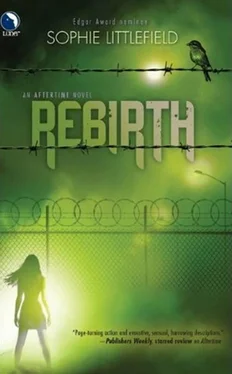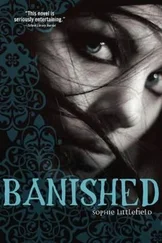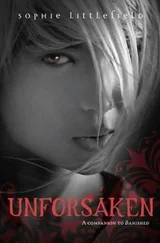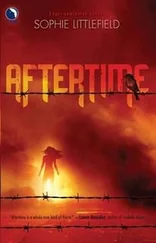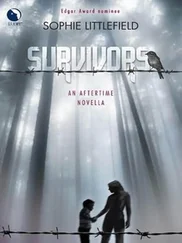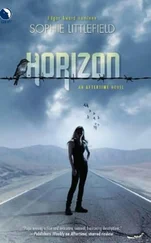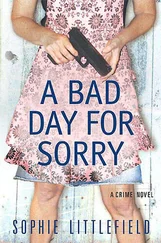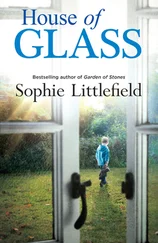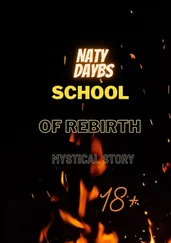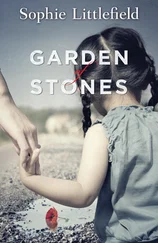“All done,” she crooned, whispering and rocking Ruthie. “All better. All better. All better.”
Pilar busied herself at her desk, turning her back on them, arranging the samples on a tray, making notes on a lined pad. Dor’s and Cass’s eyes met and he shook his head worriedly. All remained in this diorama of the aftermath of the screaming for a minute before Ruthie flailed one last time and went limp in Cass’s arms, her wails winding down into snuffles.
“That’s it, then, until we get the results,” Pilar said, turning back to them with a tight smile. “Let’s finish checking you out so we can get you over to Ellis. There’s not much more we can do until we get the results back.”
When Evangeline opened the office door, Cass heard crying coming from one of the other offices. Passing by the open door, joggling Ruthie to comfort her, she saw a haggard woman weeping while a man in scrubs stood over her and snipped away her hair, down to a quarter of an inch.
“Lice,” Evangeline explained, grimacing with disgust. “We check everyone for parasites but these people…they’re in rough shape. Hell, they’ve probably got worms and scabies and crabs, too. No sense tracking that all over the place.”
After taking them to an adjoining office, Evangeline took her leave, promising to see them later. Her discomfort in the place was evident. The woman who checked them over was far more gentle than what they had witnessed with the other newcomers. She parted their hair with a fine metal comb, working under a window where the afternoon light was strongest, and looked in their mouths and under their arms. She kept up a steady stream of conversation, asking them questions about the trip, about Ruthie, chatting about the cafeteria and what was for dinner. “My girlfriend works over there and she told me they got some of that government cheese,” she shared as she finished checking Cass. “How that stuff can survive a summer in a warehouse, I have no idea, but they’re making some sort of kaysev mac and cheese. Do you like spaghetti, Ruthie, honey?”
Ruthie had calmed down and even seemed to have forgotten her anxiety about the blood. She almost seemed to be considering answering the woman, smiling shyly and peeking out from under her long, luxurious lashes. Cass gave the woman a grateful look. She had been ready to hate everyone, but aside from Evangeline with her frightening eyes and angry rhetoric, the people here seemed not much worse than people anywhere. Again the troubling thought floated through her mind that this might not be the worst place in the world to make a home.
“You do like spaghetti, don’t you, noodle-girl?” Cass said, wiggling her fingers, and Ruthie laughed, her shoulders shaking soundlessly.
“Okay, your turn, noodle,” the woman said, dropping her comb in a tall bottle of antiseptic. “Looks like someone’s already given you a pretty haircut.”
She reached for Ruthie’s pale blond hair, finally long enough that it no longer stuck up like an overgrown crew cut-but when she touched the strands Ruthie ducked and made a tiny mewling sound. It took Cass a second to react-she’d been lulled by the warmth of her momentary happiness but gathered Ruthie in a tight hug as the little girl wrapped her arms around her neck and held on tight. The woman held up her hands defensively.
“I’m sorry,” Cass said. “She, um, she had a…something happened.”
The woman nodded and her irritation softened. Something happened- the catchall explanation Aftertime. Who was left who hadn’t been wounded, who hadn’t suffered some kind of trauma? Children’s feelings were so close to the surface; they had fewer memories of Before, fewer years to learn to hide their feelings.
Only, Cass didn’t know what exactly had happened to Ruthie to make her so skittish about her hair. Since she was rescued from the Convent, Ruthie was as affectionate as ever with Cass, wanting to be held more than ever before, crawling up on her lap, lifting her arms to be picked up. At night she often stumble-crawled from her small bed to theirs, making her way up and under the covers without ever waking. She liked to be hugged and tickled and snuggled, but she hated to have her hair combed, and once in a while she covered her head with her hands and shut her eyes and looked so sorrowful that it broke Cass’s heart.
She knew they had shaved Ruthie’s head in the Convent, but she didn’t know why. Punishment? Religious ritual? While she kept up a one-way conversation with her daughter all day long, pretending that it didn’t bother her at all when Ruthie didn’t answer, she never talked about the Convent other than to kneel down in front of Ruthie at least once a week and remind her that she could tell her mama anything, anytime, that she would never ever be in trouble for the things she told. It was a lesson from a book she had once owned, something pressed in her hands by a well-meaning woman in A.A. the week after Cass had finally talked about what her stepfather had done to her. The book was called It’s Okay To Tell and it was supposed to teach you how to deal with children who had been victims of abuse.
Offering the book was breaking the rules-in A.A. you were never supposed to give advice and Cass was pretty sure that the book was just another form of advice. Cass thought the advice rule was stupid-after all, what was the point of coming to meetings if no one was allowed to tell you what you were doing wrong? The woman was a fortyish, bloated blonde who seemed entirely without color, from her bloodless lips to her pale, cloudy eyes to her mud-colored clothing. She had pressed the book in Cass’s hands and then held her gaze a moment too long, and Cass started to get uneasy. The woman wanted something from Cass, something Cass didn’t know how to give-to be understood, to have someone acknowledge how she’d been hurt, to offload even a little of her pain. They stood that way for a second, each of them holding one end of the book, until Cass mumbled her thanks and yanked it from the woman’s hands and bolted from the building.
She’d driven to a grocery store that was open all night and parked under the streetlights and read the first chapter. She couldn’t put the woman’s hungry expression out of her mind. When she couldn’t stand to read any more, she opened the door of her car and leaned out, her hair brushing the ground, and slid the book behind the front tire. She closed her door and backed over the book, then drove ahead and back over it a second time, before driving home with her hands shaking on the wheel, not understanding what had happened. She never went back to that meeting.
But she remembered that first chapter. “Silence is toxic,” was the title. It talked about shame and “interrupting the message,” and so all this time later she knelt before Ruthie and said it was okay to tell, that her mother would always listen and never judge, that she was the most beautiful and loved little girl in the world, perfect in her mother’s and-she felt only a little self-conscious about saying it-in God’s eyes, as well.
“Well, you’re all done here,” the woman said now, bringing Cass back to the moment. “I don’t need to check her. I don’t want to upset her, poor thing. I can see you’re clean as whistles, all three of you.”
She summoned Pace, who led them back outside. More hallways, more doors, out in the air again; it took a moment for Cass to get oriented. The wall was visible here and there between the buildings; from a distance it looked pretty, even quaint, as though ivy might grow up its sides, as though kids might lose softballs over the top.
Some people said the Beaters were getting smarter all the time. What would happen if they found a way to get over the wall? There had been evidence of cooperation among them over the summer-hunting in groups, for instance. A single Beater could be overwhelmed, beaten, even killed with a relatively low risk of infection, but three or four were another matter entirely. They had been smart enough to figure that out. What if their next leap forward was to drag things-pallets, wheelbarrows, crates-over to the edge of the wall until they could scale it?
Читать дальше
Конец ознакомительного отрывка
Купить книгу
